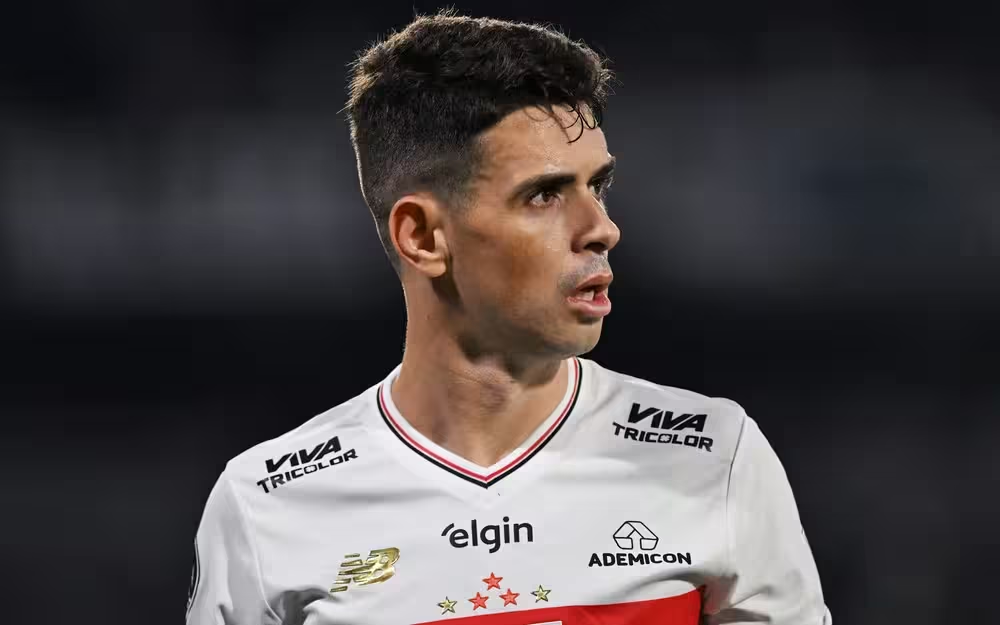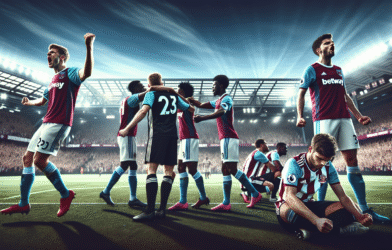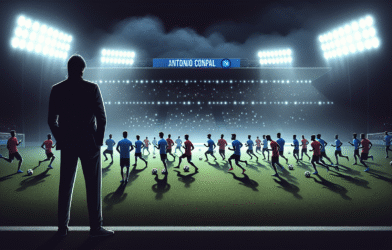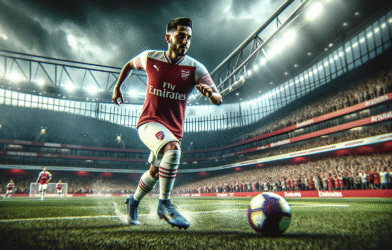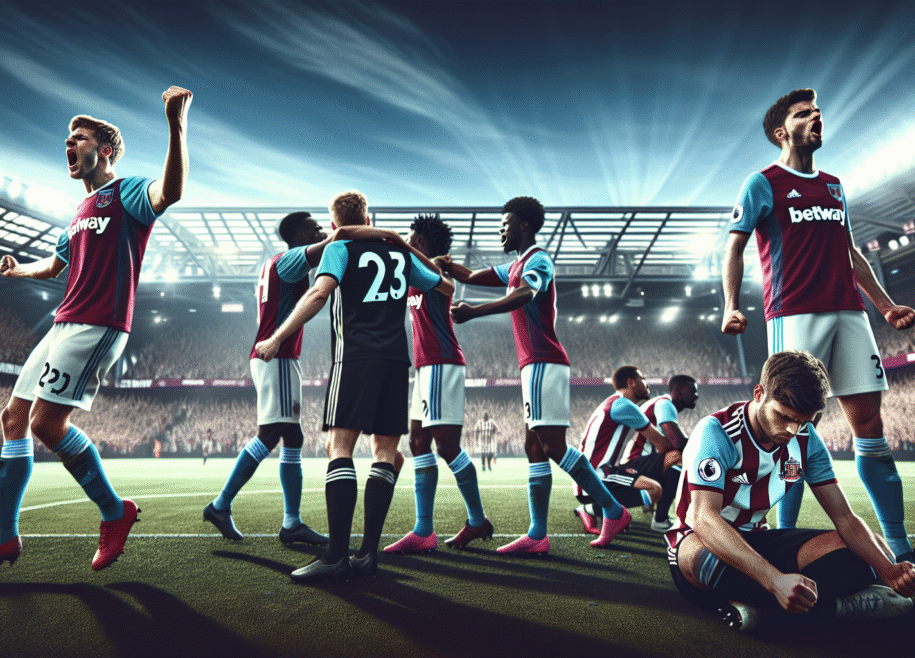Subtotal $0.00
Oscar collapses during training session
What happened during the incident
The football world watched as Oscar collapse during training during a routine fitness test at São Paulo on Wednesday. The 34-year-old Brazilian star had been going through a pre-season assessment when the collapse occurred. Teammates paused drills, and medical staff rushed to assist. He was evaluated on the sideline, then transported for comprehensive checks at a nearby hospital. The quick response aimed to stabilize him and reduce the risk of further complications. The moment underscored how health concerns can surface even in well-prepared squads during high-intensity sessions. Oscar collapse during training has become a focal point in discussions about pre-season safety and medical readiness across the sport.
The club and its fans await clear medical findings. São Paulo later confirmed the incident and indicated that Oscar is under medical evaluation to determine the cause and the best treatment plan. The update signals transparency as doctors pursue cardiological tests, imaging, and possibly additional assessments to guide future training and play. As the story develops, supporters are urged to follow official channels for the latest information. Oscar collapse during training is now a reference point for discussions about athlete welfare in busy pre-season periods. São Paulo FC has emphasized keeping fans informed while prioritizing health over performance.
Immediate medical response and transport
On-site medical staff stabilized Oscar and arranged rapid transport to a hospital, following standard protocols for suspected cardiac events in elite athletes. The aim was swift access to cardiology services and to protect against further risk during the transfer. Specialists will review ECGs, heart imaging, and biomarkers to rule out acute conditions and to determine the appropriate next steps. The club coordinated with local hospitals to ensure continuous monitoring and care. Oscar collapse during training has sparked conversations about how clubs manage risk during demanding pre-season programs. For broader context on how such responses are handled, readers can consult resources from European Society of Cardiology and media updates from outlets like BBC Sport.
Officials confirmed that Oscar was moved to hospital for further examination, and that the club would share updates as results become available. The priority remains his health, with medical teams coordinating closely with hospital specialists. Supporters can stay connected through official channels and credible outlets for the latest information. The club’s communication strategy reflects a commitment to openness while medical data is gathered. Oscar collapse during training is being treated with caution as clinicians pursue a definitive diagnosis.
Medical response and hospital evaluation
On-site treatment and hospital transfer
The immediate medical response to Oscar collapse during training was swift. Club doctors performed stabilization procedures and monitored him on the sideline while arranging transfer to a hospital. The objective was rapid stabilization and access to cardiology services. Tests will typically include electrocardiograms, troponin levels, echocardiograms, and imaging to assess for arrhythmias, structural heart issues, or myocarditis. Such protocols are standard when a high-profile athlete experiences a collapse during exertion. The club remains in close contact with hospital teams as data accrues. For ongoing coverage, credible outlets like BBC Sport provide context on how such incidents are managed in top leagues.
In parallel, the club’s medical staff coordinate with specialists to ensure safe care and transparent updates. The hospital visit will inform decisions about training load, medical clearance, and potential rest periods. Oscar collapse during training has reinforced the importance of robust medical surveillance in professional football, especially during the hectic pre-season phase. For supporters seeking official updates, São Paulo FC communications remain the primary source.
Hospital tests and next steps
Cardiological tests will determine the underlying cause of the collapse. Clinicians will evaluate rhythm, heart function, and any signs of myocarditis, arrhythmias, or other cardiac issues. Depending on findings, doctors may impose varying degrees of rest and a carefully structured return-to-play plan. Even as results are pending, teams must plan motion around medical guidance while preserving player welfare. No definitive diagnosis has been released publicly yet, but the process will guide subsequent training intensity and scheduling. The path forward will hinge on cardiology input and league health protocols. For readers seeking expert perspectives, the ESC resources at ESC Cardio offer detailed information on standard assessments in athletes.
Club statement on Oscar’s condition
Official club update
São Paulo issued an official update confirming Oscar collapse during training and stating that he is under medical evaluation. The statement underscored the club’s commitment to patient welfare and transparent communication with fans and stakeholders. It noted that additional updates would follow as tests are completed, and emphasized that medical professionals are prioritizing a precise diagnosis and safe treatment plan. The club’s approach reflects contemporary expectations for openness when a high-profile player experiences a health event. Fans are encouraged to rely on official channels for the latest information. The club’s ongoing updates can be accessed through São Paulo FC for direct statements.
The club’s statement also highlights how health concerns can influence strategic decisions. While the immediate priority is Oscar’s well-being, staff will assess potential implications for squad depth and match readiness as more information becomes available. Media coverage from outlets like BBC Sport provides broader context on how football organizations communicate during medical events.
What it means for the squad
The incident inevitably affects squad planning. Coaches must adapt training schedules and rotation options while medical evaluations unfold. Depth in midfield and forward positions may be reassessed to safeguard performance without compromising health. The emphasis remains on Oscar’s health first, followed by tactical adjustments to maintain momentum. Officials will balance fan expectations with medical prudence as updates emerge. For ongoing coverage of how clubs manage such situations, see São Paulo FC communications and trusted sports outlets like BBC Sport.
Implications for São Paulo and future play
Short-term implications for training and lineup
In the near term, São Paulo will reassess training loads, especially during intense pre-season sessions. Medical staff will monitor cardiovascular responses and adjust conditioning to minimize risk while Oscar remains under evaluation. Coaches may rotate players to preserve squad balance during practice and early fixtures. The club’s broader strategy will hinge on medical findings and the certainty that any return-to-play plan is safe. Officials must manage fan expectations while ensuring medical priorities guide decisions about selection and minutes in upcoming games. For context on how clubs adjust schedules after health incidents, credible outlets such as BBC Sport provide useful analysis.
The club will also consider external factors such as travel, international duty, and fixture congestion as it plans for the season ahead. Transparency remains key; regular briefings will help maintain trust with supporters and sponsors. The ultimate aim is to protect player welfare while maintaining competitive integrity. For further reading on health-driven policy adjustments in football, see European Society of Cardiology.
Return-to-play considerations
Return-to-play decisions will depend on cardiology assessments and the risk assessment conducted by medical staff. A cautious, phased return is typical, with gradual increases in training load and continual monitoring. The process weighs Oscar’s age, fitness, and any underlying condition against the demands of professional football. The club will prioritize long-term health over a quick comeback, communicating clear milestones to fans and stakeholders. Updates are expected as tests yield results, and the club will share guidance through official channels and trusted outlets such as São Paulo FC.
Broader context: health incidents in football
Historical precedents and lessons
Health incidents like Oscar collapse during training have shaped football’s approach to player welfare. Past cases prompted leagues to strengthen medical checks, emergency response protocols, and annual health reviews. These events often lead to reforms in pre-season testing and return-to-play criteria, with a growing emphasis on cardiovascular screening for players in their 30s and 40s. They also catalyze better coordination between clubs, leagues, and medical providers. For a broad view of how major outlets cover these patterns, see BBC Sport.
As the sport evolves, the focus on athlete welfare remains central. Teams invest in ongoing education, access to specialists, and standardized protocols to reduce risk during intense training cycles. The Oscar case adds to a growing body of evidence that medical vigilance can coexist with high-level competition, ensuring that players receive the care they need without compromising performance. For further information on best practices in sports cardiology, explore ESC Cardio.
Focus on athlete health and pre-season testing
Pre-season testing has become a cornerstone of football health policy. Clubs increasingly rely on cardiology screenings, stress testing, and hydration analysis to detect problems before they escalate. The Oscar case reinforces why medical teams insist on thorough checks, especially for players with demanding schedules and international duties. While fans crave updates on team progress, medical teams balance transparency with privacy and clinical accuracy. The overarching goal remains safer sport with fewer sudden health events during high-pressure periods. For more on how clubs implement health surveillance, read about industry best practices at ESC Cardio.





